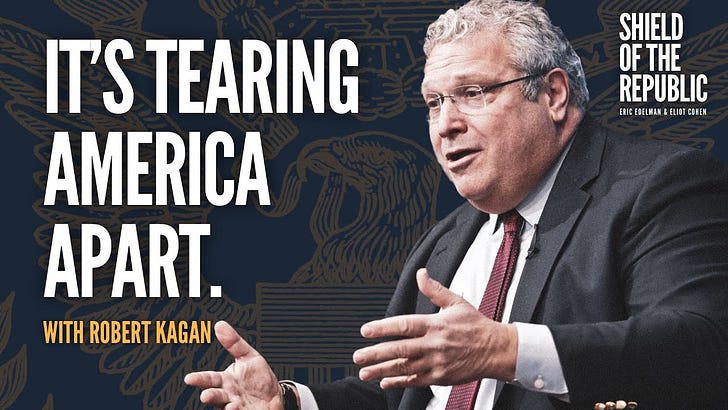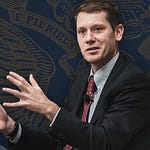Eric and Eliot welcome back Peter Feaver, Professor of Political Science and Public Policy at Duke University, to the show. They discuss Peter's new book Thanks for Your Service: The Causes and Consequences of Public Confidence in the U.S. Military (New York: Oxford University Press, 2023). Along the way they touch on the causes of public confidence in the military, the social desirability bias that makes people feel that it is right to have confidence in the military, politicization of the military, the blame game between civilians and senior military officers who seem to have public immunity from criticism because of high public confidence, whether or not confidence in the military has crested, the role of partisanship in public support, the impact of Republican critiques of "wokeness" in the military on recruiting, the lack of public support for traditional norms of civil-military relations and what it is like to teach at a university in the age of CHATGPT.
Shield of the Republic is a Bulwark podcast co-sponsored by the Miller Center of Public Affairs at the University of Virginia. Email us with your feedback at shieldoftherepublic@gmail.com
Share this post

Thanks for Your Service
www.thebulwark.com
Thanks for Your Service
Aug 25, 2023
Shield of the Republic
Audio
Shield of the Republic is a Bulwark podcast co-sponsored by the Miller Center of Public Affairs at the University of Virginia. We probe beyond the hive mind of Washington conventional wisdom on national security and foreign affairs.
Shield of the Republic is a Bulwark podcast co-sponsored by the Miller Center of Public Affairs at the University of Virginia. We probe beyond the hive mind of Washington conventional wisdom on national security and foreign affairs.Listen on
Substack App
Apple Podcasts
Spotify
Pocket Casts
RSS Feed
Recent Episodes












Thanks for Your Service